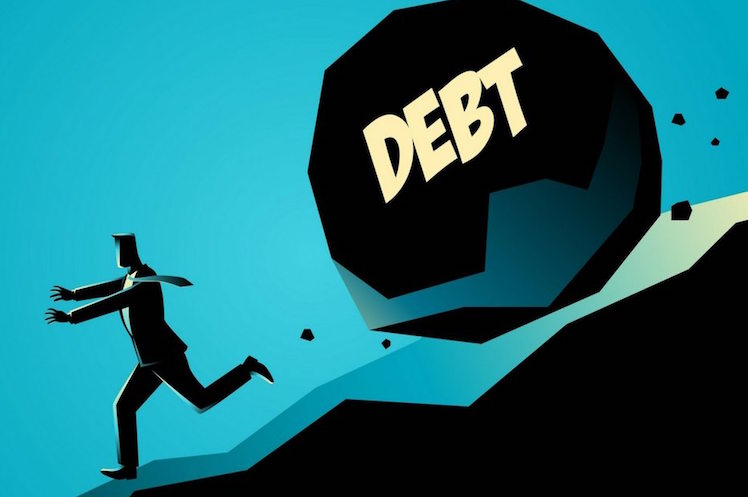As the 2030 deadline for achieving the Sustainable Development Goals (SDGs) approaches, African nations face twin challenges: striving to meet these goals while wrestling under the weight of international debt. Across the continent, many countries are entangled in crippling debt, with high interest payments draining fiscal resources and leaving little to invest in essential sectors such as education, healthcare, and infrastructure.
The issue transcends Africa; achieving the SDGs globally hinges on the continent’s success, given its significant share of the world’s population and development needs.
Today, the urgency for African finance ministers and Central Bank governors to take a united, assertive stance against these unsustainable debt conditions is greater than ever. The call is for a freeze on interest payments, alongside demands for comprehensive debt relief. However, any relief obtained must be managed with prudence, focusing on human capital development to ensure that debt relief becomes a launchpad, not a temporary lifeline. This strategy could not only lift millions out of poverty but also position Africa as a proactive player on the global stage, rather than a continent trapped in a perpetual debt cycle.
In 2024, Africa’s external debt burden remains unsustainable, with debt levels exceeding $700 billion. Debt servicing costs are draining African budgets, diverting funds from critical investments. Countries such as Zambia, Ghana, and Ethiopia have defaulted on their debts or sought restructuring deals, while 17 African nations are classified as being in debt distress. Much of this debt stems from Chinese loans, with China holding around 12 per cent of Africa’s total external debt. This untenable financial pressure has brought African economies to the brink of collapse, threatening development progress and regional stability.
- AfCFTA: Lekki Deep Sea Port positions Lagos as West Africa’s trade gateway – Sanwo-Olu
- WRC-27: Gwandu seeks unity among African countries to secure vital mobile spectrum
The situation is exacerbated by high interest rates and the dominance of dollar-denominated debt. The cost of servicing Africa’s debt is projected to rise sharply in 2024, pushing more countries deeper into debt distress and limiting their ability to invest in long-term social and economic development. This financial pressure creates a vicious cycle of poverty and stunted growth, particularly when many African nations are working toward the SDGs. This urgent debt dilemma has led African leaders to not only advocate for debt relief but also to call for a reform of the global financial framework itself.
Prominent economist Jeffrey Sachs has long been a champion for African debt relief, emphasising that Africa’s international debt is rooted in systemic injustice. Sachs argues that much of Africa’s debt was incurred under unsustainable terms, trapping nations in cycles of borrowing to meet existing loan obligations. According to Sachs, Africa urgently needs debt relief, not just for immediate economic stability but to invest in sustainable development and human capital. He warns that without such measures, the continent risks remaining in a state of dependency, unable to unlock its true potential as a global economic driver.
Sachs further highlights that Africa’s debt crisis reveals deeper inequalities in the global financial system. Historically, the imbalance of power between developed and developing nations has disadvantaged African countries, preventing them from accessing fair financial terms. Sachs argues that to break free from this cycle, the global community must offer African nations a fresh start through comprehensive debt relief, enabling the continent to achieve parity with other global players. This would allow African countries to harness their resources and demographic potential to drive global growth and innovation.
The case for freezing debt interest payments extends beyond economic logic; it is a moral imperative. Many of the loans African nations struggle to repay were extended under conditions that did not meet global best practices. In some instances, these loans came with exorbitant interest rates and unsustainable terms, pushing governments into a cycle of borrowing to service previous loans, with limited resources left to invest in future growth. This is why African finance ministers and Central Bank governors must press for an immediate freeze on interest payments and, ultimately, long-term debt relief.
Also at the 79th United Nations General Assembly, Barbados Prime Minister Mia Mottley called for a fundamental “reset” of the international financial system. It is time for humanity to have a just world that respects all mankind. The current international system is utterly unfair for Africa in particular and the Global South in general. This call for reform underscores the growing consensus that the current system is overdue for change, and for Africa, debt relief is a necessary first step toward realizing a fairer, more inclusive global economy.
The current debt scenario is severely impairing African nations’ ability to meet the SDGs and to reduce poverty. Freezing debt payments would give African governments the fiscal space needed to allocate resources toward vital sectors like healthcare, education, and infrastructure—areas critical for both immediate and long-term development. However, debt relief should not be viewed as a charitable gesture but as a crucial step toward addressing structural imbalances in the global financial system. It is about granting Africa the opportunity to shape its destiny, free from unsustainable debt burdens.
For debt relief to make a meaningful impact, African leaders must commit to using freed resources wisely. Funds released from debt obligations should be invested in human capital development, specifically in education, healthcare, and infrastructure. These sectors are essential not only for meeting the SDGs but for equipping Africa’s rapidly growing youth population to compete and thrive in the global economy. Africa’s youth are its greatest asset, and failing to invest in their development risks a future where a young population remains underemployed and economically marginalized.
It is time for Africa to redefine its role on the global stage. The continent’s call for debt relief should be framed not as a plea for charity, but as a demand for fairness and equity in the global financial system. Africa has the potential to drive global economic growth, but this can only happen if the continent is liberated from the chains of debt dependency.
In my opinion debt relief is a critical step for African nations to focus on long-term development, combat poverty, and address issues like inequality and climate change. Relieving this burden would empower Africa to emerge as a full partner in global progress, a participant on equal terms with other nations, not a mere beggar.
African nations could make significant strides by deploying technology to curb revenue leakages rather than increasing taxes. Adopting digital tools like blockchain, AI, and data analytics would enhance tax collection, improve transparency, and reduce inefficiencies, especially in sectors like oil and customs. Such an approach would increase revenue without placing additional burdens on citizens, ensuring that funds remain within the economy to support growth.
The time for action is now. African finance ministers and Central Bank governors must unite in their call for a freeze on interest payments and for comprehensive debt relief. Meanwhile, African political leaders must commit to using any relief resources effectively, channeling them into human capital development, which is essential for long-term growth and prosperity. The international community must also step up and provide the necessary support, but Africa must seize this opportunity to forge its path, free from the constraints of debt, and ready to claim its place as a leader on the world stage.
Adam, Ph.D wrote from Maiduguri

 Join Daily Trust WhatsApp Community For Quick Access To News and Happenings Around You.
Join Daily Trust WhatsApp Community For Quick Access To News and Happenings Around You.


